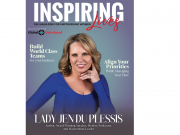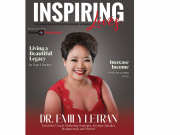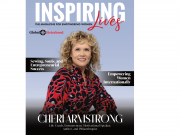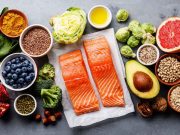Fall is a lovely transition phase when our bodies are designed to know that winter is coming. We naturally turn to heavier fruits in season (as our berries and melons, peaches and apricots become a thing of yesteryear, making way for the crisp, tart apples and pears). These fall fruits provide an abundance of fiber, priming the gut to digest the heavier foods winter offers. These hearty fruits and vegetables help to “dry out” the body from its easily digestible, soft/wet fruit summer months. Without sufficient “drying”, we have increased mucous production. This can serve as prime real estate for the body to harbor viruses, which are commonly seen in the late fall and early winter months.
As the temperatures drop, we need to nourish the body from the inside to balance the yin/yang. If we are eating colder foods (“yin foods” such as fruits, raw vegetables, salads, cold drinks), we create an imbalance of that yin, leaving us cold from the inside out, being more prone to illness. Therefore, we want to eat the root vegetables and warming meals to balance hormones, strengthen immunity, and boost energy to feel well rounded and balanced, ready to take on the season.
- Root vegetables: carrots, squash, pumpkin, turnips, cabbage, mushrooms, and sweet potato *should be steamed; avoid raw during this season
- Whole grains: brown rice, quinoa, oats, and millet
- Legumes: beans, chickpeas, lentils, soybeans
- Green vegetables: broccoli, spinach, kale, celery, escarole, and artichokes
- Fruit: bananas, avocados, apples, pears, tomatoes, pomegranates, citrus fruits
- Animal Protein: sea bass, cod, sole, haddock, meats, eggs
- Herbs: focus on warming spices such as cardamom, nutmeg, cloves, ginger, turmeric, cinnamon, rosemary, thyme, basil, and dill
Breakfast ideas:
- Warm oats with pumpkin pie spice and almond butter
- Warming porridge with pre-soaked oats, plant-based milk, grated apple, ginger, cinnamon, nuts and seeds.
Lunch ideas:
- Baked squash with protein , rice, and warm green tea.
- Combine some sort of grain with root vegetables, legumes, and a side of green vegetables to make a nourishing bowl
Dinner ideas:
- Soup with vegetables, tomatoes, broth, rice or pasta and warming spices like curry. Crusty bread and ginger or chai tea
- Steam or baked fish with a side of vegetables and rice
Snack Ideas:
- Warming herbal teas
- Nuts and seeds
- Energy Balls
- Granola Bars
- Apple slices with nut butter and cinnamon
- Poached pear with cinnamon
But why are these things so healthy? Let’s look…
Apples – The nutrients found in apples can help prevent spikes in blood sugar and reduce the risk of a variety of chronic diseases. This fruit is in season during the autumn months and comes in a variety of flavors.
Pears – Recent studies have shown that the skin of pears contains at least three to four times as many phenolic phytonutrients. These phytonutrients include antioxidants, anti-inflammatory flavonoids, and potentially anti-cancer phytonutrients.
Winter Squash – Butternut, acorn and pumpkin are just a couple of varieties of winter squash high in nutrients, antioxidants, polyphenols that all help to increase immunity and protect.
Cabbage – This seasonal vegetable has cholesterol-lowering benefits and is also rich in fiber, particularly when steamed.
Mushrooms – Mushrooms are really great to eat since they can help influence blood lipids, blood glucose, immunity, and weight control. They also offer many essential nutrients and antioxidants.
Pomegranates – Considered the “jewel of the autumn” Pomegranates are a rich source of soluble and insoluble dietary fibers. It is also a good source of Vitamin C.
Root vegetables – All different kinds of root vegetables are great – carrots, turnips and sweet potatoes are real nutritional stars in both autumn and winter. Tasty beetroots are also great as they are jam-packed with Folate, Vitamin C and Magnesium.
Begin to transition to heartier, heavier soups, stews and crock pot meals as Winter approaches while being mindful of healthy choices rather than calorically heavy foods. Think broth over cream options. Using these guidelines will offer you a sense of calm, warmth and respite going into these months with stronger immunity and energy. Here’s to a Happy Fall!





































